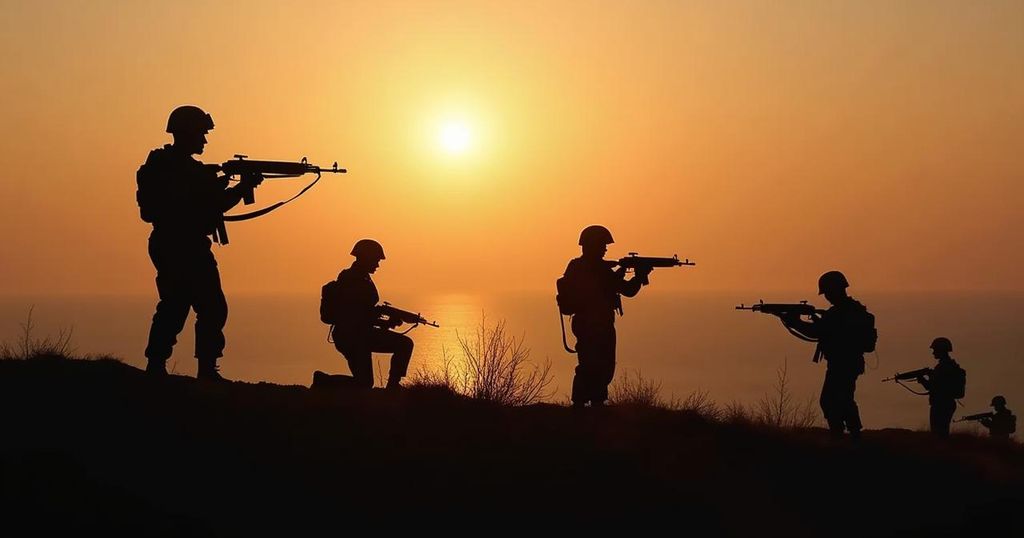Tensions in the Middle East escalate as Iran launches a ballistic missile attack on Israel and Israeli forces face significant losses in Lebanon. The conflict has led to extensive Israeli bombardments on both Lebanon and Gaza, resulting in numerous civilian casualties. Israeli leadership indicates a readiness to respond strategically, while humanitarian conditions worsen for affected civilians. The situation poses concerns for a potential regional conflict as international powers watch closely.
The situation in the Middle East has escalated, with fears of a regional war growing due to recent Iranian ballistic missile strikes against Israel. In Lebanon, Israeli forces engaged in a ground invasion targeting Hezbollah militants have suffered considerable losses, including the deaths of eight soldiers. Israel’s military response has included extensive airstrikes against both Lebanon and Gaza, resulting in numerous casualties. Leila Molana-Allen reports from Beirut, highlighting the devastation in Lebanon and Hezbollah’s readiness to confront Israeli forces, despite facing severe setbacks in leadership and infrastructure. Meanwhile, Nick Schifrin provides insight from Tel Aviv, noting that the Iranian missile strikes, although significant, largely fell short of their intended targets. Israeli military leaders have expressed their intention to respond effectively, focusing on key targets in Iran’s economy rather than its nuclear capabilities, a position the Biden administration specifically opposes. As the conflict continues to unfold, the humanitarian toll on civilian populations in Gaza and Lebanon rises alarmingly, with thousands displaced and many dead. The international community watches closely, hoping for a measured response from Israel that avoids escalation into further violence.
The recent conflict has intensified in the Middle East, primarily involving Iran and Israel. Iran launched its most significant missile assault against Israel, provoking concerns of Israeli retaliation. Israel’s military operations focus on Hezbollah in Lebanon, aiming to diminish its capabilities. The two nations have a long-standing hostility intertwined with broader regional dynamics, with both sides preparing for an increasingly volatile confrontation. The situation is exacerbated by external factors, including U.S. interests in the region and the humanitarian crisis developing in Gaza due to ongoing Israeli airstrikes against Hamas. This complex scenario has heightened fears of a broader conflict that could draw in additional actors in the region.
The recent exchange of military actions between Iran and Israel signals a significant escalation in hostilities, raising the specter of a larger regional conflict. With Israeli forces facing substantial casualties in Lebanon and Iran preparing for a potential Israeli retaliation to its missile strikes, the situation remains precarious. The international community is encouraged to closely observe the developments and advocate for restraint, fostering efforts that prioritize peace and humanitarian considerations amidst the ongoing turmoil.
Original Source: www.pbs.org







